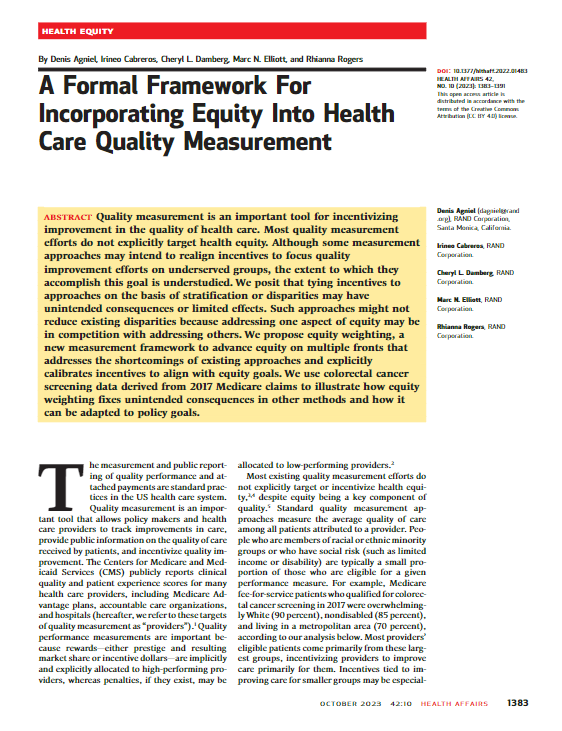Headline
Using “equity weighting” may improve quality measurement efforts intending to advance health equity for underserved groups.
Context
Well-intentioned health equity measurement approaches used by health care stakeholders intending to promote equity are often stratified based on a single equity dimension, such as race. The authors of this article warn that these approaches could hinder health equity by addressing one disparity at the risk of worsening another, such as those related to geography or socioeconomic status.
To counter these unintended consequences, this study proposes equity weighting — a framework that can be used to adjust weights for different patient groups based on equity goals. For example, smaller groups may be assigned a higher weight to achieve equal weight to that of larger groups. This study compares equity weighting to current approaches to quality measurement in health equity, using 2017 Medicare data on colorectal cancer screenings.
Findings
In basic incentive scenarios, the authors found that a health system which uses current measurement tools to improve health care for their patient population would focus quality improvement efforts on the larger, dominant group (the white patient population). However, equity-weighting incentivized scenarios that prioritized screening for Black and rural patients.
For competitive incentives scenarios, where health systems’ quality is ranked relative to other health systems, the authors found that a system that prioritized resources for Black and rural patients would decline in their overall quality ranking if they used standard measurement tools. However, systems would experience significantly greater improvement in quality ranking when using equity weighting to prioritize care for Black and rural populations.
Takeaways
This study found that standard health equity measurement approaches may allocate disproportionate quality improvement resources for the largest groups, exacerbating inequities. However, equity weighting sets parameters to improve health equity for marginalized groups while still improving the overall quality of a system. This tool can help hospitals, accountable care organizations, and other providers fulfill value-based payment quality metrics while addressing historical disadvantages for underserved populations.

